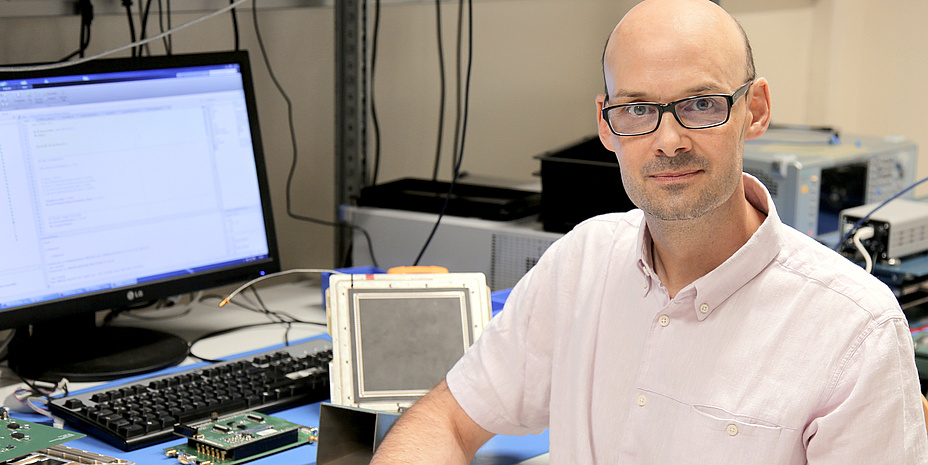ET Interview: Michael Gadringer EN

Please describe your field of work in a few sentences.
Michael Gadringer: I work in the field of microwave and photonic engineering. Few people really know what this is, but it is something we all use every day. Mobile phones and their wireless connections to other devices are just one example. Many processes are necessary for the mobile phone itself and for our applications and apps to function properly on it. And it's with these technologies in the background that I'm working: I build them, look at how well they work and how I can capture or even improve their performance. For example, without an antenna or a power amplifier in the mobile phone, we would not have any connection to the base station. The result would be constant disruptions – which would almost be the end of the world for users today.
What excites you in your field of work?
Michael Gadringer: This incredible subject range and the ever-changing challenges. Over the past five to ten years, our entire technological environment has changed. We used to have a thermostat that would allow us to control the temperature. Today, we want to automatically control our homes and apartments, and want sensors and control points, all wirelessly connected. The network is getting wider, we want to carry everything in our pockets, to have all information available at all times. But how does that work? How can we make a sensor work for years with just a small button battery? How does a car drive autonomously? What makes a robot touch-sensitive? How does a weather radar generate reliable weather forecasts? All this is high-frequency technology, it's all electrical engineering.
What do you want to convey to your students?
Michael Gadringer: I’d like them to remain flexible when brainstorming. To use a metaphor: Anyone who always strictly sticks to recipes while cooking will miss out on surprising tastes. In research, the situation is very similar. If we always act according to a pattern, we lose our 360-degree view. So, I would like to encourage my students to use a given problem to develop surprising patterns of thinking and to find solutions that do not yet exist. Diversity instead of uniformity, so to speak.
In which specific areas are your former students working today?
Michael Gadringer: In southern Austria, there are many companies dealing with semiconductor technology and quite a few of them focus on high frequency technology. A majority of our graduates eventually settle down there. Not surprisingly really, because there is a great demand to further develop products and new technologies. This requires good people who understand these concepts and who can adapt flexibly to new challenges. And these companies have learned that the students of TU Graz fit these criteria.
How did you first come into contact with TU Graz?
Michael Gadringer: I was writing my doctoral thesis at TU Vienna but switched to TU Graz when this institute was founded in 2010. So, I was the institute's first assistant and helped build the institute from the ground up. In doing so, I was able to contribute with my view of the subject matter. It was quite the challenge to find our research direction and to equip our laboratory so that we can keep up with the world’s best.
What do you like most about TU Graz?
Michael Gadringer: At TU Graz, we are very well connected to the industry. And we are involved in world-class research. This combination is of course ideal for me, as a researcher and teacher, as it allows me to constantly improve myself and push ahead with new ideas.




